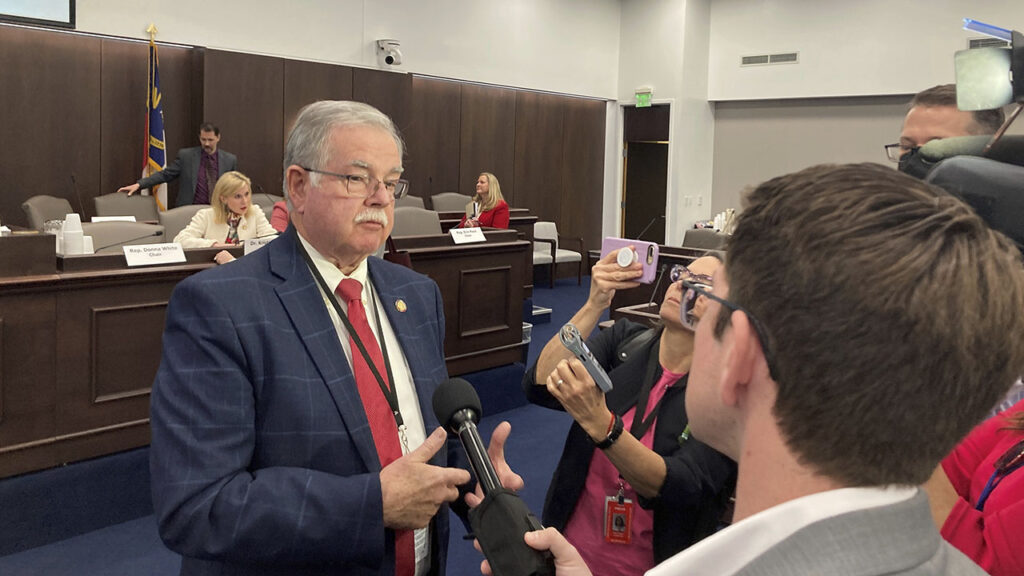With North Carolina’s two legislative chambers at odds over details of a comprehensive plan for health care access, the House gave tentative approval on Wednesday to a linchpin of any agreement with the Senate by voting to expand Medicaid to more low-income adults.
With robust bipartisan support, the chamber voted 96-23 to accept more Medicaid coverage available under the 2010 Affordable Care Act. It could cover potentially 600,000 people who usually make too much to qualify for conventional Medicaid but too little to benefit from subsidized private health insurance. The bill still faces one more House vote on Thursday before going to the Senate.
North Carolina is among 11 states that haven’t adopted Medicaid expansion.
“I’m asking for you to support Medicaid expansion because it is a smart and necessary investment in our state,” Rep. Donny Lambeth, a Forsyth County Republican and the bill’s chief sponsor, said during the debate. “Think about the people you represent who will actually benefit from this,” he told colleagues.
Republican Senate leaders also want to expand Medicaid, but with changes such as loosening “certificate of need” laws to offer medical equipment or add hospital beds, and empowering advanced-practice nurses to treat patients without a doctor’s supervision. House Republicans said they’re willing to consider the changes separately, as well as others to boost the supply of medical services and providers.
The House and Senate passed competing bills in 2022, but couldn’t hammer out a compromise. Lambeth has expressed optimism that something can get worked out this year, and that voting early may jumpstart negotiations.
All Democrats joined two-thirds of the Republicans present Wednesday to back the House measure. Democratic Gov. Roy Cooper, who would be asked to sign any final compromise, strongly supports expanding Medicaid.
Republicans in charge of the legislature for years argued that expanding Medicaid was risky for the state’s fiscal picture and would widen the federal government’s influence in people’s lives. But GOP leaders have come around to the idea recently, saying the state’s current Medicaid program is sound, there were no signs that Congress would stop covering 90% of the expansion expenses, and that the working poor need medical insurance.
The House measure would allow expansion applicants ages 18-64 to receive the coverage starting next January. The state would pay its 10% share — several hundred million dollars annually — using revenue from assessments paid by hospitals, which in turn benefit from getting reimbursed as they cover patients with Medicaid.
The state also could get an extra $1.5 billion over two years through a financial sweetener in a COVID-19 federal relief package. House Republicans aim to use a good bit of the bonus for mental health services and other needs.
The House bill also contains a provision sought by the Senate and the state’s hospitals that would yield an extra $3 billion more annually for hospital systems that treat Medicaid patients.
An amendment approved during Wednesday’s floor debate would direct state health officials to attempt to negotiate with the federal regulators to require some Medicaid enrollees to work if they want to keep receiving coverage.
North Carolina has 2.9 million people on Medicaid. Up to 300,000 could lose coverage as COVID-19-era protections end. Many could re-qualify if the state expands Medicaid.
Source : AP News


